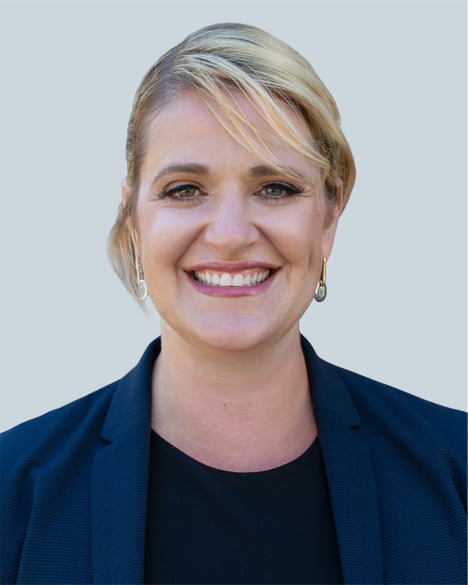
Global Regulatory Pulse—Q2 2025
The Q2 2025 Global Regulatory Pulse highlights key regulatory updates across regions. In this issue: Hong Kong’s Securities and Futures Commission (SFC) issued cybersecurity standards for licensed corporations and new market sounding guidelines; Singapore launched a S$5 billion Equity Market Development Programme and proposed retail access to private market funds; the EU faced delays in the European Securities and Markets Authority’s (ESMA’s) 2025 deliverables and introduced the EU Sustainability Rules Omnibus Simplification Package; the Middle East saw updates from the Central Bank of the UAE and Abu Dhabi Global Market (ADGM); the UK’s FCA launched a five-year strategy and took enforcement action against Crispin Odey; and in the U.S., the SEC updated regulations on digital assets and repealed Staff Accounting Bulletin (SAB) 121.
APAC
Hong Kong
Expected Standards on Cybersecurity for Licensed Corporations
The SFC issued a report based on its thematic review of selected internet brokers’ compliance with its cybersecurity guidelines and code of conduct, as well as cybersecurity incidents reported by licensed corporations (LCs) in recent years. The report sets standards for LCs to adopt to detect and prevent phishing:
- Avoid end-of-life software.
- Manage remote access.
- Oversee third-party IT service providers.
- Ensure cloud security.
The report also reiterates that senior management, particularly the manager in charge (MIC) of IT, is ultimately responsible for identifying, monitoring and mitigating cybersecurity threats faced by LCs.
Continued Enforcement Focus on ROs and MICs
The SFC prohibited Mr. Steven Wong Yung, a responsible officer (RO) and CEO of Kylin International Co. Limited, from re-entering the industry for 14 months due to his failures in managing private funds. Wong, who also served as the firm’s MIC for various functions, failed to ensure the firm maintained appropriate standards of conduct, adhered to proper procedures in managing funds and properly managed the risks associated with the firm’s business. This case highlights the SFC’s focus on holding ROs and MICs accountable when they fail to discharge their duties.
Market Sounding Guidelines to Come into Effect
The SFC’s guidelines on market sounding are due to come into effect on May 2, 2025. Before the effective date, the SFC updated its FAQs to clarify the obligation on those outside Hong Kong and their expected compliance with the guidelines when conducting market sounding activities in Hong Kong.
Singapore
Equities Markets Development Initiatives
In February 2025, the Monetary Authority of Singapore (MAS) launched a S$5 billion Equity Market Development Programme to strengthen Singapore’s stock market. The initiative directs capital to established fund and asset managers with strong track records in Singapore-listed equity securities, aiming to bolster market liquidity and attract quality public listings.
Related initiatives include:
- Tax exemptions for fund managers investing substantially all assets under management in Singapore-listed equities
- Adjustments to Singapore’s Global Investor Programme, requiring new family offices to allocate at least S$50 million to Singapore-listed equities
- Expansion of capital incentives and grants to enhance equity research coverage in Singapore
Retail Access to Private Market Funds
In March 2025, the MAS proposed a regulatory framework to allow retail investors access to private market investment funds. The long-term investment fund framework includes two retail-accessible fund structures: direct funds and funds-of-funds. This initiative follows a global trend to democratize private markets and aims to diversify investment options for retail investors while strengthening Singapore’s equity markets. The proposal is open for consultation until May 26, 2025.
Enhanced Investigative Powers
Recent legislative changes in Singapore have expanded the MAS’ powers under various acts to enhance its supervisory and enforcement capabilities. The MAS can now:
- Compel individuals by subpoena to appear before the regulatory body.
- Enter premises without prior notice under certain conditions.
- Issue reprimands and other disciplinary actions to individuals even after they have left regulated entities.
European Union
Delay in ESMA 2025 Deliverables
In March 2025, ESMA published a letter to the European Commission detailing delays and de-prioritizations in its 2025 Annual Work Programme. ESMA attributed these changes to the workload from new legislative requirements effective in 2025 and the high number of existing pieces of legislation due for review.
Some of the items being de-prioritized include:
- Alternative Investment Fund Managers Directive Review: regulatory technical standard (RTS) on open-ended loan originating alternative investment funds—delayed by six months (original deadline April 12, 2025)
- Markets in Financial Instruments Regulation/Markets in Financial Instruments Directive II: RTS on order execution policies—delayed by six months (original deadline December 29, 2024)
- Undertaking for Collective Investment in Transferable Securities Eligible Assets Directive: technical advice on eligible assets—delayed by three months (original deadline April 2025)
The full list is in the annex of the ESMA letter.
EU Sustainability Rules Omnibus Simplification Package
On February 26, 2025, the European Commission published its omnibus simplification package on sustainability rules. The proposals aim to cut red tape and simplify EU rules for citizens and businesses. The package includes simplifications in:
- Sustainability reporting (Corporate Sustainability Reporting Directive)
- Sustainability due diligence (Corporate Sustainability Due Diligence Directive)
- EU taxonomy
The timeline for adoption is unclear, with the next step being a review by the European Parliament and Council. Adoption will likely be in the second half of 2026.
EBA Consultation on New Rules Related to AML/CFT Package
On March 6, 2025, the European Banking Authority (EBA) launched a public consultation on four RTSs central to the EU’s new anti-money laundering/countering the financing of terrorism (AML/CFT) package. The European Commission asked the EBA to prepare these RTSs to assist with the effective operations of the new EU Anti-Money Laundering Authority (AMLA). The RTSs cover:
- The selection of firms for direct supervision by AMLA
- A harmonized approach to AML/CFT risk assessments for all national supervisors
- The extent and quality of information required by firms for customer due diligence
- Indicators and criteria for applying sanctions to ensure a consistent EU-wide methodology
The consultation closes on June 6, 2025.
Middle East
CBUAE
The Central Bank of the UAE (CBUAE) issued its Annual Report 2024, highlighting the country’s achievements and its leadership role in shaping a sustainable financial future. The UAE’s economic performance saw significant growth in 2024, with real GDP growing by 3.9%. Forecasts predict an acceleration to 4.7% in 2025. The CBUAE also achieved record financial results in 2024, with total assets estimated at AED 896 billion, up from AED 721 billion in 2023, driven by increased net inflows into the national economy.
CBUAE is developing an open finance platform, making the UAE the first country globally to implement a consolidated trust framework and centralized API hub. This platform will enable a single secure connection to access the entire banking and insurance markets, ensuring access is granted only with customer consent to third parties regulated by the CBUAE.
Financial Services Regulatory Authority/ADGM
ADGM recorded a 245% increase in assets under management in 2024, compared to a 35% surge in 2023. It now hosts 134 asset and fund managers overseeing 166 funds. This growth is reflected in the surge of new licenses, with top global firms choosing ADGM as their regional hub. By the end of 2024, ADGM housed 275 financial institutions, 79 of which were licensed that year.
ADGM published Consultation Paper No. 2 of 2025, proposing amendments to:
- Capital requirements for Category 4 firms
- Reporting requirements for Category 3B and 3C firms
- Professional indemnity insurance requirements under Prudential — Investment, Insurance Intermediation and Banking Rulebook (PRU)
ADGM is reviewing its prudential framework to ensure requirements remain proportionate to business models and risk profiles.
ADGM also published Consultation Paper No. 1 of 2025, proposing periodic reporting requirements for all authorized fund managers and seeking feedback.
DFSA/Dubai International Financial Centre
The Dubai Financial Services Authority (DFSA) invites firms to express interest in participating in its Tokenization Regulatory Sandbox. This will allow firms to test tokenized financial solutions in a controlled environment, facilitating experimentation with the regulatory framework and innovative products and services while trying new solutions. Interested firms will undergo an assessment process.
The DFSA also reported a 31% growth in authorizations, with 135 new entities added. The increasing registrations in the Dubai International Financial Centre highlight DFSA’s role in supporting financial innovation and fintech companies while ensuring compliance with global standards.
SCA
- The Securities and Commodities Authority (SCA) successfully recovered AED 4.1 million for investors in 2024 through amicable settlements. This achievement highlights the efficiency and agility of the SCA’s regulatory framework and its commitment to protecting investor interests while navigating complex financial market challenges.
- The SCA published two draft regulations on security tokens and commodity tokens and on robo-advisors, inviting experts and other relevant parties to provide input. These projects support the UAE’s goal of becoming a global economic hub over the next 10 years, as part of the “We the UAE 2031” vision.
- In a landmark achievement, the SCA recorded a 200% growth in women’s representation on the boards of UAE public joint-stock companies over three years. The current mandate requires every listed public joint-stock company to have at least one female board member.
United Kingdom and Channel Islands
United Kingdom
FCA Portfolio Letter—Asset Management and Alternatives
On February 26, 2025, the FCA published a portfolio letter on its asset management and alternatives strategy, outlining its current supervision priorities, which include:
- Supporting confident investing in private markets: The FCA discussed its multi-firm review of private markets valuation practices, which was released in March 2025. The FCA will also be completing a multi-firm review focusing on conflicts of interest at firms managing private assets.
- Building firm and financial system resilience against market disruption: In collaboration with the FCA, the Bank of England recently published findings from the system-wide exploratory scenario (SWES). The SWES highlighted risks and vulnerabilities across the UK financial system, providing useful insights for firms to improve risk management practices. Consequently, the FCA will focus on surveillance of prudential risk management, liquidity management and operational resilience.
- Securing positive outcomes for consumers: Following the 2024 interim portfolio letter, the FCA continues its multi-firm review of unit-linked funds. The review assesses price and value across the value chain to ensure good outcomes for investors. The FCA plans to publish its findings later this year.
FCA Private Market Valuation Practices Review
On March 5, 2025, the FCA published its findings from a multi-firm assessment of valuation practices and governance for valuing private market assets. The FCA made clear that firms must have robust valuation practices to encourage fairness and confidence in financial markets. In its review, the FCA found that, generally, many firms had good practices in place, but improvements could be made in certain areas, including:
- Documentation of conflicts of interest
- Independence of the valuation process
- Ad hoc valuations during times of market disruption
Update on the FCA’s Enforcement Transparency Proposals
On March 12, 2025, the FCA announced that, because of a lack of consensus, it will not proceed with its proposal to shift from an exceptional circumstances test to a public interest test for announcing investigations into regulated firms. The FCA noted it is expediting enforcement work and will continue to publicize cases in exceptional circumstances. Additionally, the FCA stated it will outline next steps regarding nonfinancial misconduct by the end of June.
FCA Launches Five-Year Strategy
On March 25, 2025, the FCA published its five-year strategy aimed at deepening trust, rebalancing risk, supporting growth and improving lives. This strategy aligns with the government’s goal for economic growth and shifts from a three-year strategy to provide more market certainty. The four areas of focus for the FCA are:
- Be a smarter regulator: Improve processes and enhance technology to become more purposeful, predictable and proportionate.
- Support sustained economic growth: Enable innovation and investment to encourage competitiveness in the UK financial services market.
- Help consumers navigate their financial lives: Ensure information and support are available to consumers to make informed decisions, boosting trust and product innovation.
- Fight financial crime: Focus on those who use their regulated status to cause harm.
Enforcement Case: Crispin Odey
On March 17, 2025, the FCA announced its decision to fine Crispin Odey of Odey Asset Management LLP (OAM) £1.8 million and ban him from the UK financial services industry due to a lack of integrity, breaching Individual Conduct Rule 1. Odey deliberately sought to frustrate OAM’s disciplinary processes regarding his conduct and showed a reckless disregard for OAM’s governance, causing the firm to breach regulatory requirements. The FCA determined Mr. Odey’s conduct demonstrated he is not fit and proper to perform any function related to regulated activities, resulting in his ban from the UK financial services industry.
Channel Islands
Jersey’s recent updates to its regulatory framework for virtual asset service providers (VASPs) emphasize the island’s dedication to maintaining financial integrity while supporting innovation. Key developments include:
- 2024 VASP National Risk Assessment: Identified the money laundering, terrorist financing and proliferation financing threat and inherent vulnerability posed by the sector as medium-high.
- VASP Travel Rule (2024): Requires VASPs to collect, store and transmit specific information about the originator and beneficiary of virtual asset transactions in line with FATF recommendations. This aims to enhance transparency and traceability within the virtual asset ecosystem, reducing the risk of money laundering and terrorist financing.
These updates underscore Jersey’s proactive stance in safeguarding the financial system against emerging threats while fostering a secure environment for virtual asset operations.
United States
SEC Administration and Regulatory Updates
On April 9, 2025, the United States Senate confirmed Paul Atkins as the next chairman of the U.S. SEC. Even before his confirmation, the former acting SEC chairman led numerous organizational and regulatory updates, signaling more changes to come. Key updates include:
- Organizational changes: Hundreds of SEC staff took resignation or early retirement offers. Certain regional office leases were terminated, and senior staff in the Division of Enforcement were reorganized, eliminating the roles of regional directors. The U.S. Government Accountability Office plans to scrutinize these changes.
- Regulatory updates: The SEC’s Division of Investment Management issued new guidance on the Marketing Rule. The SEC also scaled back some previously authorized activities, including ending its defense of rules requiring disclosure of climate-related risks and greenhouse gas emissions. Several active crypto-related enforcement actions were dismissed, and individuals previously suspended by the SEC were reinstated.
Despite retracting prior defenses, actions and suspensions, the SEC has not deviated from its settled off-channel communications cases. Firms that settled recordkeeping violations sought to modify their orders to align with subsequent SEC actions in January 2025. The SEC denied the motion, stating: “Settlor’s remorse—and a desire to revisit that risk calculus—does not justify upsetting a final, agreed-upon settled order.” While the SEC under the new administration has dismissed contested litigation, it has not modified or nullified former settlements.
Marketing Rule Amended FAQs
The SEC’s Division of Investment Management has updated the Marketing Rule FAQs, providing clarity on items such as gross performance figures in marketing materials. Key points include:
- Extracted performance: Advisers can present extracted performance and portfolio characteristics on a gross-of-fees basis. They must clearly label extracted performance as gross, must present total portfolio performance (both gross and net) with equal prominence before extracted performance, and must ensure performance periods align.
- Enforcement: The SEC will not pursue enforcement for mismatched time periods if guidelines are followed.
- Metrics: Metrics such as yield or volatility can be displayed without computing net figures if the same guidelines for extracted performance are followed.
These updates provide advisers with clear guidelines, reducing the risk of enforcement while ensuring transparency and accuracy in marketing materials.
Digital Assets / Crypto Regulation
On day three in office, President Donald Trump signed a digital assets executive order titled “Strengthening American Leadership in Digital Financial Technology.” This executive order established a Working Group on Digital Asset Markets chaired by Special Advisory to the President on AI and Crypto David Sacks, and it includes officials from the Secretary of the Treasury, Office of the Attorney General, Secretary of Commerce, SEC and Commodity Futures Trading Commission.
The working group has been tasked with several deliverables within specific time frames:
- Within 30 days: Identify all regulations, guidance and orders affecting the digital asset sector.
- Within 60 days: Submit recommendations on whether to rescind or modify the identified regulations.
- Within 180 days: Submit a comprehensive report to the president proposing a federal regulatory framework for digital assets, including stablecoins, and evaluating the potential creation of a national digital asset stockpile.
GENIUS Act (Guiding and Establishing National Innovation for U.S. Stablecoins)
The GENIUS Act, introduced on February 4, 2025, aims to provide a comprehensive regulatory framework for stablecoins. This bipartisan legislation is seen as a critical step in integrating stablecoins into the U.S. financial system, potentially strengthening the dollar’s position as the global reserve currency.
Key points include:
- Consumer protection mandates that stablecoin issuers maintain segregated one-to-one reserves and comply with U.S. AML and sanctions rules.
- Transparency and accountability require regular audits and public disclosures of reserves.
- Federal and state oversight combine federal oversight with state-level flexibility, allowing smaller issuers to operate under state supervision while placing larger providers under federal oversight.
Repeal of SAB 121
The repeal of SAB 121 marks a significant shift in the U.S. crypto industry. SAB 121, issued by the SEC in March 2022, required financial institutions to reflect client-held crypto assets as both an asset and a liability on their balance sheets. This unorthodox treatment forced the public onto unregulated trading platforms, increasing risks for investors.
The repeal of SAB 121 allows banks and traditional financial institutions greater flexibility in providing crypto-custody services, applying Generally Accepted Accounting Principles and International Financial Reporting Standards to assess risks, disclosures, and financial reporting related to crypto assets. This change could lead to an influx of institutional capital into the crypto market, further legitimizing and stabilizing the industry.
Stay Ahead with Kroll
Compliance and Regulation
End-to-end governance, advisory and monitorship solutions to detect, mitigate and remediate security, legal, compliance and regulatory risk.
U.S. Solutions
Navigate the ever-changing U.S. financial regulatory environment with confidence. Kroll provides unparalleled expertise in SEC, FINRA, NFA and CFTC regulations, helping clients mitigate risks, maintain current compliance programs and confidently overcome regulatory challenges.
UK Solutions
The UK regulatory landscape is constantly evolving, with new Financial Conduct Authority (FCA) initiatives introduced and working practices regularly updated at a European level.
Middle East Solutions
Kroll’s Financial Services Compliance and Regulation experts help clients build, manage and protect their businesses both in the United Arab Emirates and more broadly in the Middle East.
Managed Compliance Software
Automate routine compliance tasks and stay ahead of risk with Kroll’s regulatory expertise.








